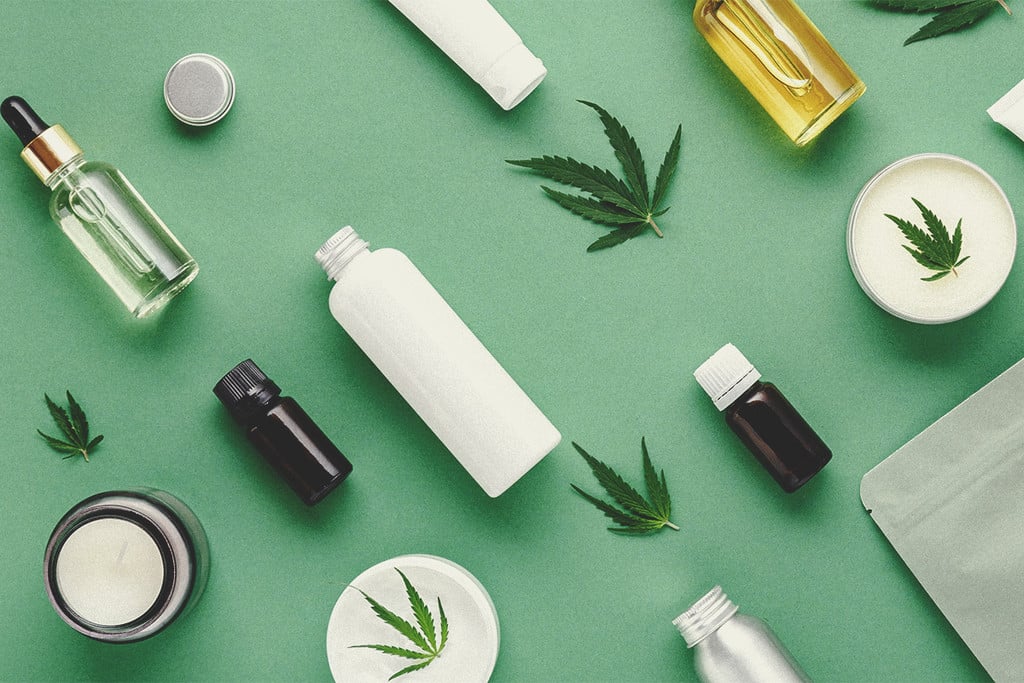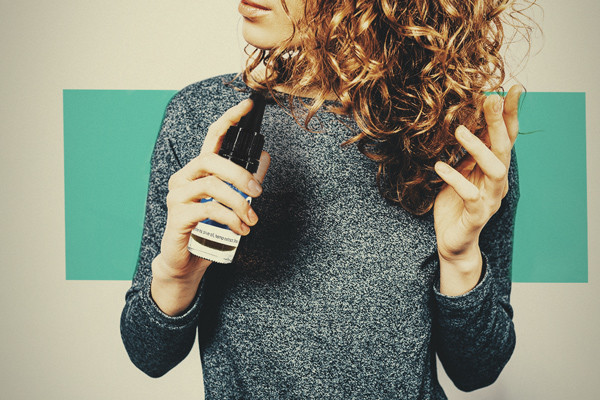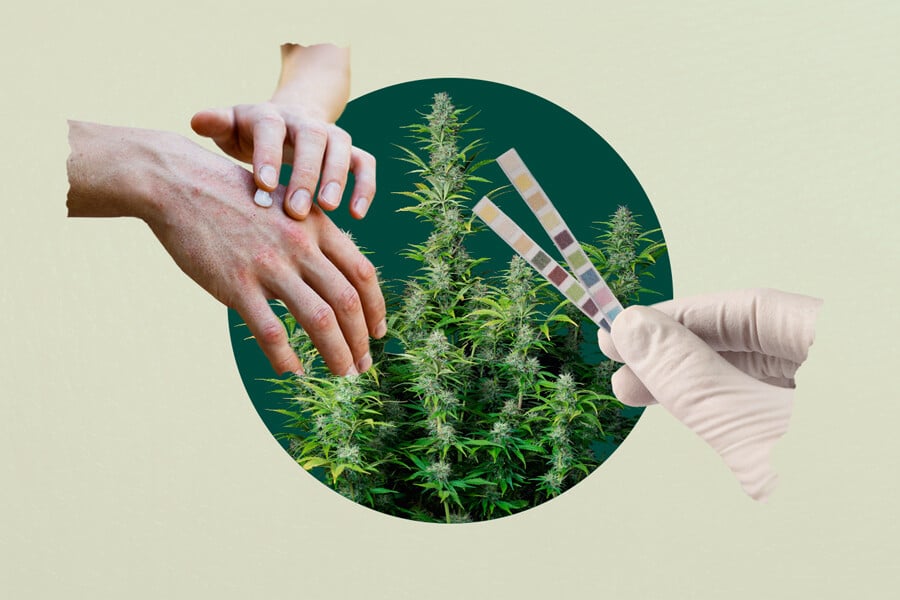.
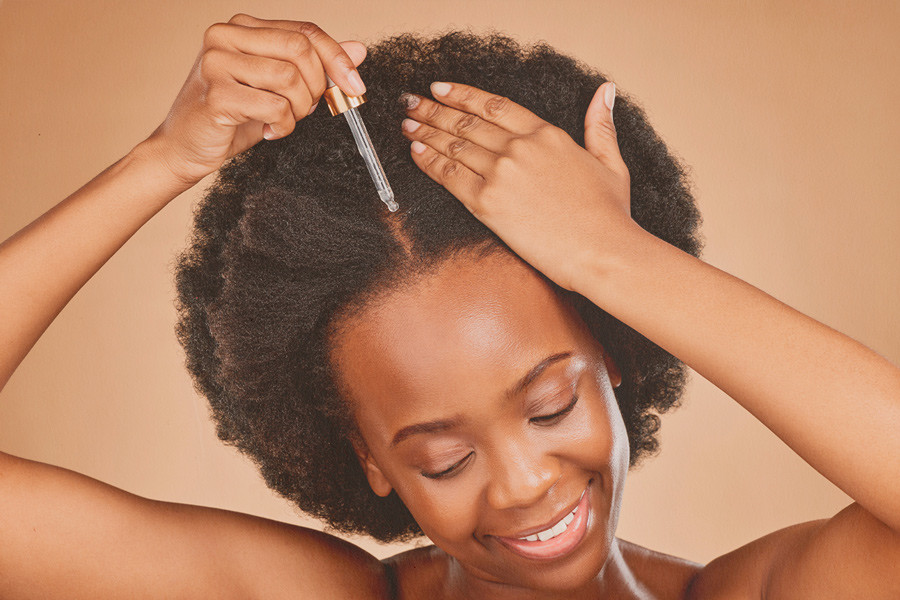
What Are the Effects of Cannabis on Hair?
Many who manufacture cannabis products aren't shy about over-hyping medical claims, nor are those who want to see cannabis legalized. Here, we investigate the potential effects of cannabis on hair, and try to do so dispassionately.
You’d be forgiven for thinking that cannabis could cure any problem and improve all aspects of your health. People are wont to misinterpret research (both good and bad) for their own ends. When it comes to cannabis and hair, it is no different. Does weed make your hair grow? Is CBD good for hair loss? Scour the web and you'll find a wealth of information in the affirmative, but the truth is not so clear cut.
So, in this article, we look at a selection of studies and try to understand what effects cannabis may or may not have on the health of your hair.
Contents:
Cannabis and Hair Health — Is There a Link?
Some claim that cannabis can help hair grow, while others claim that it makes hair fall out. Some suggest inhaling cannabis in order to benefit the hair, while others suggest using topical creams or other methods. Some recommend THC to stimulate hair growth, and others recommend CBD.
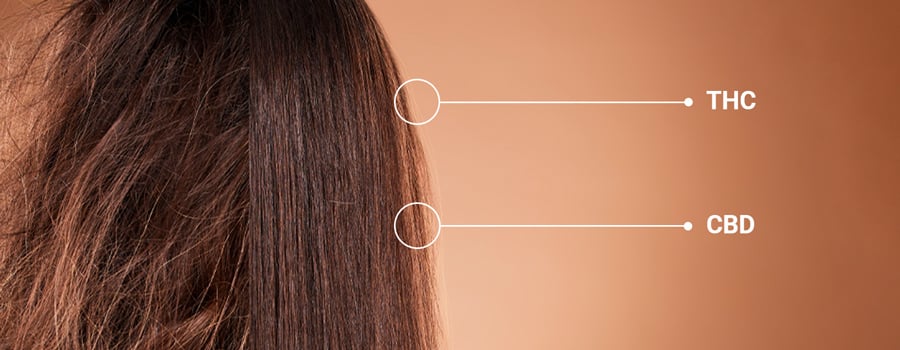
So, what is the link between cannabis and hair growth/loss? The short answer: it’s complex and unclear. Before we go any further, it’s worth noting that there is no one, single effect that cannabis has on hair growth. There are two main reasons for this.
First, hair growth comes down to a multitude of factors, both genetic and environmental. Cannabis, in some cases, may be able to influence these, but it’s unlikely to ever be the deciding factor.
Second, cannabis is a cocktail of hundreds of active compounds—and each strain is different. So saying cannabis has one specific effect on hair growth is missing the point that cannabis is not a single, uniform substance.
With that said, below we attempt to break everything down a little and investigate what effects THC and CBD, in isolation, might have on hair growth. Even then, we will see that the answers remain unclear.
THC and Hair
THC is the most abundant cannabinoid in most strains of cannabis, and it’s the one that causes the famous “high”. There’s a lot of misinformation surrounding how THC might impact hair health, but let’s try to "detangle" the research available.
Serum Testosterone
A 2017 study investigated the effects of THC intake on testosterone levels[1]. Previous research had shown mixed, contradictory results, and this study aimed to find out a little more by investigating 1,577 men.
In the end, the study authors concluded that recency, not frequency, was the most important factor in determining testosterone levels. Those men who had most recently used cannabis had the highest serum testosterone levels, while those who had never used or had not recently used cannabis showed normal levels.
Though it's unclear what effects this might have on hair health, it is thought that higher testosterone levels can:
- Encourage bodily hair growth
- Encourage the production of oil on the scalp
- Increase the chances/severity of male pattern baldness
However, it remains unclear whether THC exerts any effect on those features of hair health.
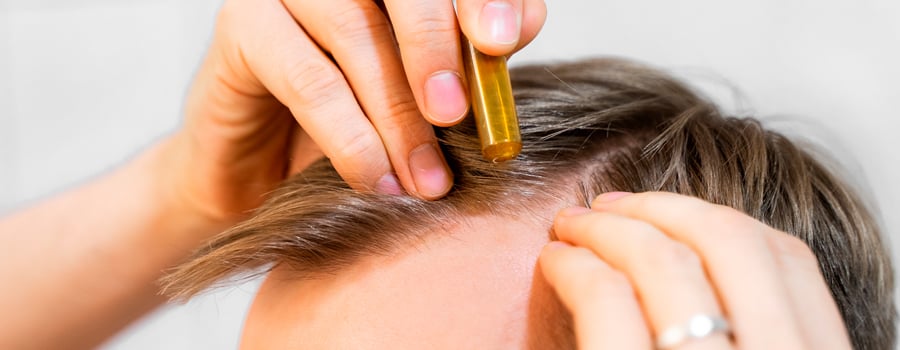
Hormones
By affecting various hormone levels, it may be that THC can impact hair growth. However, this may have more to do with lifestyle choices and their effects more than the direct effects of the compound.
Cannabis consumption has been shown to affect estradiol production[2]. Estradiol is an estrogen hormone produced in the ovaries. Both cannabis’ effects and a sedentary lifestyle lower estradiol production, which in turn affects aromatase function (the conversion of testosterone to estrogen).
In both men and women, this inhibited aromatase function can lead to increased testosterone and reduced estrogen. For men, this may have similar effects as listed above. For women, it is unclear, but reduced estrogen levels may inhibit hair growth.
Discovering exactly how all of this affects hair growth and health will require more research, but it is known that the affected hormones are key players regarding hair growth[3].
THC and Cortisol
While cannabis has a reputation for making people feel relaxed, on a physiological level it actually appears to [4] (the stress hormone).
It is known that heightened stress can degrade hair health, increase the chances of pattern baldness occurring, and increase the likelihood of other types of alopecia (hair loss). That being said, it is unknown whether the increased cortisol levels caused by cannabis might affect hair growth.
Another study showed that frequent cannabis use may blunt the acute effects of cortisol, and that users may have a dysregulated hypothalamic-pituitary-adrenal axis[5]. This could have far more detrimental effects than unhealthy hair growth (or lack thereof), and should be considered by all frequent cannabis users.
CBD and Hair
CBD, the second most abundant cannabinoid in cannabis, is thought to exhibit mostly beneficial effects on hair growth. That being said, whether this is truly the case, and to what degree, remains unclear.
Cannabinoid Receptors on the Scalp
The scalp appears to be covered in CB1 and CB2 receptors, meaning it is receptive to cannabinoids.
One study attempted to uncover what effects the topical application of CBD might have on hair growth. Interestingly, it found that CBD alone did appear to encourage hair growth[6]. A small study, involving 28 male patients and 7 female, found that a single application of 3 to 4mg of topical CBD per day increased non-vellus hair growth.
It’s worth noting that the same study suggests that other cannabinoids, and general cannabis consumption, may be bad for hair growth.
A 2023 study indicated why CBD might encourage hair growth. It found that topically applied CBD partially blocks CB1 receptors on the scalp, which led to hair shaft elongation. Moreover, CBD also binds to the vanilloid TRPV1 receptors, which control hair follicle function.
Interestingly, this study notes that effects are dose dependent and that more is not always better. Higher doses of CBD, it claims, can activate TRPV4 receptors, which causes hair follicles to move prematurely into the catagen stage—where the hair detaches at the base and falls out.
So, while moderate doses may encourage hair growth, higher doses might accelerate hair loss.
CBD and Stress
CBD has been studied for its effects on stress and anxiety[7], and it has been shown to reduce concentrations of hormones such as cortisol.
As mentioned, stress is known to negatively impact hair growth and health. Therefore, the use of CBD (through edibles or inhalation) might be able to help mitigate these negative effects. That being said, CBD is no cure for a stressful lifestyle, and while it might be able to help you manage stressful periods, it will not solve a problem by itself.
Furthermore, the ingestion method is very important. Smoke contains many toxic and highly dangerous compounds, and some of these are thought to negatively affect hair health. So you may smoke CBD in an attempt to improve hair health, only to make things worse. Choose your consumption method wisely.
Cannabis Hair Products
So, the answer to the question "is weed good for hair?" remains elusive. The link between CBD and hair appears stronger and more positive than that of THC and hair. Though it's questionable whether cannabis hair products really work, below is a list of common CBD hair products.
- Cannabis hair oil: This can be applied to your hair and scalp. In most cases, it contains CBD and a mixture of terpenes. These cannabis products are mixed with a natural oil, such as hemp seed, argan, or olive oil. Moreover, they tend to be supplemented with additives such as vitamins, minerals, antioxidants, and essential fatty acids.
- CBD shampoo and conditioner: These products are supposed to be used on a regular basis in place of normal shampoos and conditioners. The best options are made from natural ingredients and have CBD added to them.
- Hair supplements: These tend to come in the form of gummies or capsules and contain a range of vitamins, minerals, and cannabinoids that are supposed to benefit hair growth.
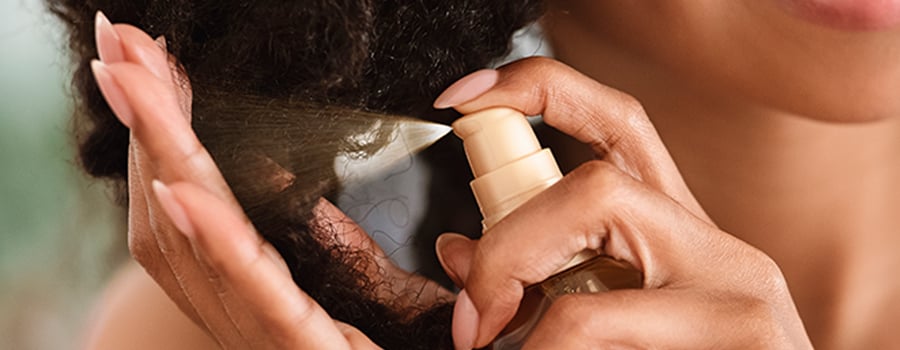
Other Factors That Affect Hair Health
Hair, like skin, generally indicates overall health and well-being. While some people can sometimes develop conditions that result from a single cause (such as genetic baldness), in most cases hair health reflects a multitude of factors.
Therefore, if you want to improve your hair health, you should seek to live a generally healthy lifestyle. One of the best things you can do for your hair is limit stress. To do this, you should exercise, eat healthily, and sleep well. While cannabis might be a part of this multi-pronged approach to a healthy lifestyle, it shouldn’t be all you do to mitigate stress.
Cannabis and Hair: The Truth Is Tangled
It is very uncertain what effects cannabis might have on hair health. In the case of THC, it’s really hard to tell, and you shouldn’t draw any definite conclusions. When it comes to CBD, the truth is still murky, but it seems that topical CBD creams might be able to encourage hair growth.
That being said, hair growth in a clinical setting is different to hair growth in real life, and it’s unlikely that CBD alone will combat conditions such as alopecia and baldness. But it might help to keep your hair a little healthier generally.
If you want to look after your hair, the best bet is to look after your overall health. And even though hair is precious to some of us, don’t worry too much—bodies change!
- Marijuana use and serum testosterone concentrations among U.S. males - PubMed https://pubmed.ncbi.nlm.nih.gov
- Frontiers | Marijuana Is Associated With a Hormonal Imbalance Among Several Habits Related to Male Infertility: A Retrospective Study https://www.frontiersin.org
- Hormonal Effects on Hair Follicles - PMC https://www.ncbi.nlm.nih.gov
- The effects of cannabinoids on serum cortisol and prolactin in humans - PMC https://www.ncbi.nlm.nih.gov
- Marijuana Use and Hypothalamic-Pituitary-Adrenal Axis Functioning in Humans - PMC https://www.ncbi.nlm.nih.gov
- A cannabinoid Hairy-Tale: Hair loss or hair gain? - PubMed https://pubmed.ncbi.nlm.nih.gov
- Enhancing Endocannabinoid Control of Stress with Cannabidiol - PMC https://www.ncbi.nlm.nih.gov


























